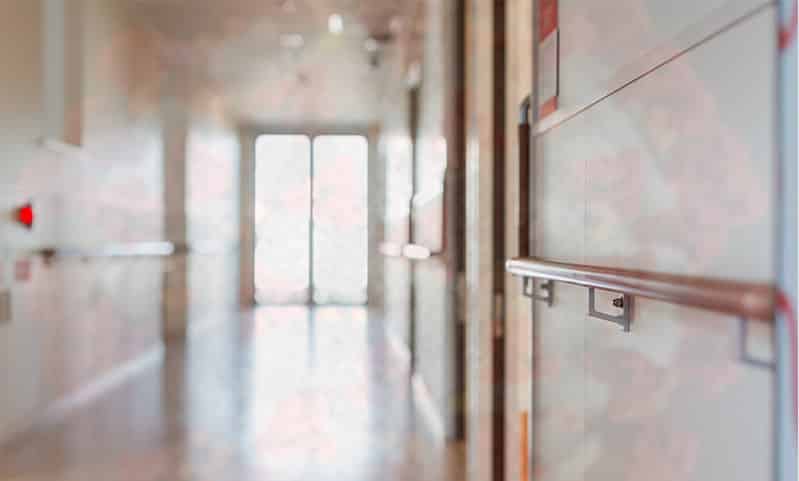Largely as a result of poor decisions and chronic understaffing, two workers at a Massachusetts soldiers’ home might spend the next thirteen years in prison because of criminal charges.
A grand jury indicted Bennett Walsh and Dr. David Clinton, two members of Holyoke Soldiers’ Home’s leadership team nursing home, on multiple charges.
According to prosecutors, in March 2020, staffers combined infected and healthy residents into one dementia ward.
One worker said the policy felt like “We were moving these unknowing veterans off to die.”
In response, Bennet Walsh’s attorney stated that “it is unfortunate that the attorney general is blaming the effects of a deadly virus that our state and federal governments have not been able to stop” on her client.
Older Adults and Coronavirus
Most people have two immune systems. Leukocytes are the first line of defense against viruses and microbes. T-cells are the second line of defense.
Powerful viruses like COVID-19 easily overwhelm the first line of defense. For reasons that are not entirely clear, older individuals have very few T-cells. So, once a pathogen breaks through the first line, there is no backup.
An older person’s immune system also has a much longer response time than a younger person’s systems. So, by the time the reserves reach the point of attack, the coronavirus or other infection is often too well-rooted to eradicate.
Perhaps more importantly, many older people have pre-existing conditions.
Despite the aforementioned changes, a healthy 80-year-old might have an immune system almost as robust as a 30-year-old.
But any pre-existing respiratory condition, such as mild asthma or COPD, transforms coronavirus into a life-threatening condition.
Add the normally crowded conditions at most nursing homes to this equation, and it is no surprise that over 40 percent of all coronavirus deaths have occurred in nursing homes.
Coronavirus is so contagious that a momentary lapse of hygiene, which as outlined below is almost inevitable, could lead to an outbreak. And, these outbreaks almost always result in multiple fatalities.
The Link Between Understaffing and Nursing Home Neglect
Most long-term care facilities have, at least on paper, very strict hygiene rules in the coronavirus age. But the high level of activity at these facilities makes it almost impossible to enforce these policies 100 percent of the time.
Understaffing, which affects about 90 percent of the nursing homes in the United States, makes this problem worse.
Most nursing home employees must multitask. In that environment, protocols often get lost in the shuffle. Additionally, understaffing causes some facilities to hire under-qualified workers.
For example, a patient care tech might perform duties that a licensed vocational nurse should probably perform. Less-qualified workers might have less appreciation for serious infections diseases like coronavirus.
Infectious diseases are not the only nursing home neglect issue. This issue is a problem at all times, and not just during global pandemics. Some examples include:
- Falls: Many facilities are constantly expanding, which means they are constantly under construction. Fully staffed nursing homes have workers who steer residents away from hazardous areas. Understaffed facilities have no such workers.
- Resident on Resident Assaults: On a related note, nursing homes should have employees who break up petty fights between residents before they turn violent. Understaffed facilities do not have these chaperones. And, since most residents are physically frail, a tiny amount of force could cause a serious injury.
- Bedsores: Many residents cannot turn themselves over in bed, due to medication or physical frailty. If staff does not turn over these residents at least once every two hours, bedsores could develop. If caught early enough, they are not serious. But they quickly become life-threatening if not properly treated.
In most cases, nursing homes are financially responsible for related injuries if they had a legal duty and they knew about the hazard.
Other similar liability theories include negligent hiring (retaining an incompetent worker) and negligent supervision (Failing to watch employees and/or take appropriate action if they are negligent.
Damages in a nursing home negligence claim usually include compensation for economic losses, such as medical bills, and noneconomic losses, such as pain and suffering.
Additionally, and perhaps most importantly, legal claims shine light on nursing home neglect, so other residents are not victims themselves.
Nursing homes are breeding grounds for coronavirus infections and other injuries.
For a free consultation with an experienced personal injury attorney in New York, contact Napoli Shkolnik PLLC. We do not charge upfront legal fees.
